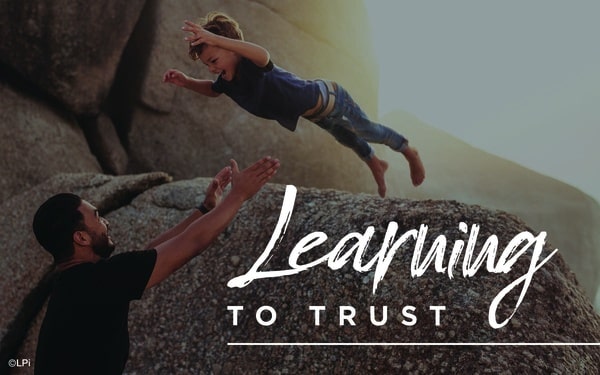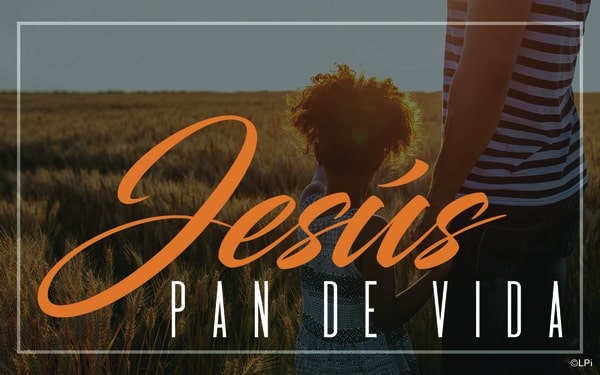Gospel Meditation
July 31, 2021

August 1, 2021
18th Sunday in Ordinary Time
“You cannot see the forest for the trees” is a widely known saying that can bring wisdom to our understanding of our journey. Often, our sight becomes limited to what is immediately before us. We lose touch with lessons and experiences from the past and promises and hope for the future. As human beings, we have the privilege of being able to choose things. What I like and don’t like, want, and don’t want can be major preoccupations of our minds and hearts. Our preferences and desires begin to define us more than the simple fact of our being. Who we are matters more than what we are or what we have. If we don’t move beyond the external and superficial stuff to what really is of essence, we risk becoming very unsettled, disorientated, angry, and unhappy. We fail to see the bigger picture of hope and promise that lies ahead and the Divine Presence that has sustained and carried us before.
We like it when the “now” time of our lives satisfy us. Even the people who witnessed Jesus feed the five thousand got confused and distracted. It felt good when thousands of people were able to eat. They wanted to know what they could do to get this to happen again! But Jesus quickly reminds them that this is not the point of this sign. As much as the now time of our lives is of concern, it is not what is ultimately important. We need to learn the difference between being and doing, drawing more strength from who we are and who God is rather than what is happening around us and the choices we can make. Jesus is the true bread that came down from heaven. Jesus is the very incarnate presence of God who sustains life and assures us that we will not perish. This is not easy to understand and feel. We have to practice being in the presence of ourselves, others, creation, and God. We are brought to a holy place when we encounter the sacredness of being. This is real prayer.
Then, we learn to trust. It is when we cease trusting that we start to become afraid, uncertain, apprehensive, and doubtful, and overly self-concerned. We even start to grumble. God has our back. That is the essential powerful message of the living bread come down from heaven. God, who is alpha is also omega, the beginning and the end, and has everything in between in his care as well. A woman once remarked that her most powerful God moment happened when she and her husband cuddled with their new baby for a time. Without exchanging words and using only the affection communicated through sight and touch, they rested in being with each other. This brought them to the sacred, where they realized that a greater Being was with them. It was real. They knew that they were part of something bigger, intimate, and profound. When we rest in the Living Source of life, we will find that our souls are no longer hungry or thirsty.
©LPi
MEDITACIÓN EVANGÉLICO (Gospel Meditation)

1 de agosto 2021
18º Domingo del Tiempo Ordinario
Estamos en momentos difíciles de la historia. Mucha gente murmura y se pregunta: ¿Cuándo terminará la pesadilla de la pandemia? ¿Dónde está Dios en todo esto que estamos viviendo? Vivió algo similar el pueblo de Israel que caminaba en el desierto, también sentía la angustia de saber dónde estaría Dios en su experiencia de jornada, después de su salida de Egipto. Ellos basaban su realidad en el hambre, pues recordaban las ollas de carne y de comer pan hasta saciarse. Con todo esto, Dios dijo a Moisés: “He oído las quejas de mi pueblo. Diles: por la tarde comerán carne y por la mañana se saciarán de pan; así sabrán que yo soy Yavé, el Dios de ustedes” (Éxodo 16:11-12).
El maná que cae del cielo es un alimento que la misericordia de Dios da al pueblo de Israel. Pero, debía ser recogido todos los días, es decir, alimento para cada día que obliga a la gente a confiar en Dios y a darse cuenta que este maná es un alimento para el camino por el desierto. En el Evangelio de hoy, Jesús dice a la gente que lo buscaba: “En verdad les digo: Ustedes me buscan, no porque han visto a través de los signos sino porque han comido pan hasta saciarse” (Juan 6:26-27). Cuando participo en la Eucaristía, ¿busco a Jesús como alimento de vida, o lo busco para saciar mis caprichos? ¿Veo la Eucaristía como alimento de vida que me acerca a Jesús? Recordemos que Jesús es el Pan de vida y el que acude a él con sinceridad de corazón nunca tendrá hambre, y el que cree en él nunca tendrá sed. Pidamos, en la Eucaristía que seamos cristianos que orientamos nuestra vida a ejemplo de Jesús.
©LPi
